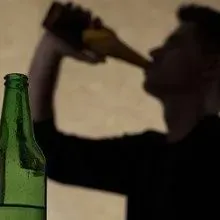 ISTOCK, KATARZYNABIALASIEWICZA research funding request to the National Institutes of Health (NIH) may have been quashed as part of an effort to woo industry sponsors of another large study, reports STAT News. The evidence includes an email exchange between the director of the National Institute of Alcohol Abuse and Alcoholism (NIAAA) and an alcohol company executive pledging not to fund the type of study that linked alcohol advertising to teen drinking.
ISTOCK, KATARZYNABIALASIEWICZA research funding request to the National Institutes of Health (NIH) may have been quashed as part of an effort to woo industry sponsors of another large study, reports STAT News. The evidence includes an email exchange between the director of the National Institute of Alcohol Abuse and Alcoholism (NIAAA) and an alcohol company executive pledging not to fund the type of study that linked alcohol advertising to teen drinking.
The news report builds on earlier revelations by Wired and The New York Times that NIAAA scientists courted industry funders of a study on the health effects of moderate alcohol consumption by emphasizing the probability that the results would favor such consumption. STAT adds fresh evidence that conflicts of interest may have influenced decisions at the National Institutes of Health (NIH), the largest federal funder of biomedical research.
In the article published by STAT yesterday (April 2), Michael Siegel, a community health researcher at Boston University School of Public Health, gives an account of a 2015 meeting in which he and a coinvestigator on an NIAAA-funded study were summoned to the institute to discuss the work. In the meeting, George Koob, the NIAAA Director, “kept ...




















